Ukrainian journalists were taught to document war crimes during the two-day War Crimes Documentation School training held under the auspices of the Tribunal For Putin initiative and the National Union of Journalists of Ukraine (NUJU).
A total of 26 journalists-participants in the two-day War Crimes Documentation School training from the Chernihiv, Sumy, Mykolayiv, Donetsk, Kherson, Zaporizhzhia, Dnipropetrovsk, Kharkiv, Poltava, Cherkasy, and Lviv Regions were greeted by the leaders of the NUJU, Sergiy Tomilenko and Lina Kushch. Most of those selected to participate in the event were media journalists from de-occupied and front-line local media.
“Journalists have been the target of the russian military throughout the war,” NUJU President Sergiy Tomilenko emphasized. “And this is obvious because journalists prevent the russian authorities from creating an information bubble in which they keep russian society and which is designed to make them supporters of the war.”
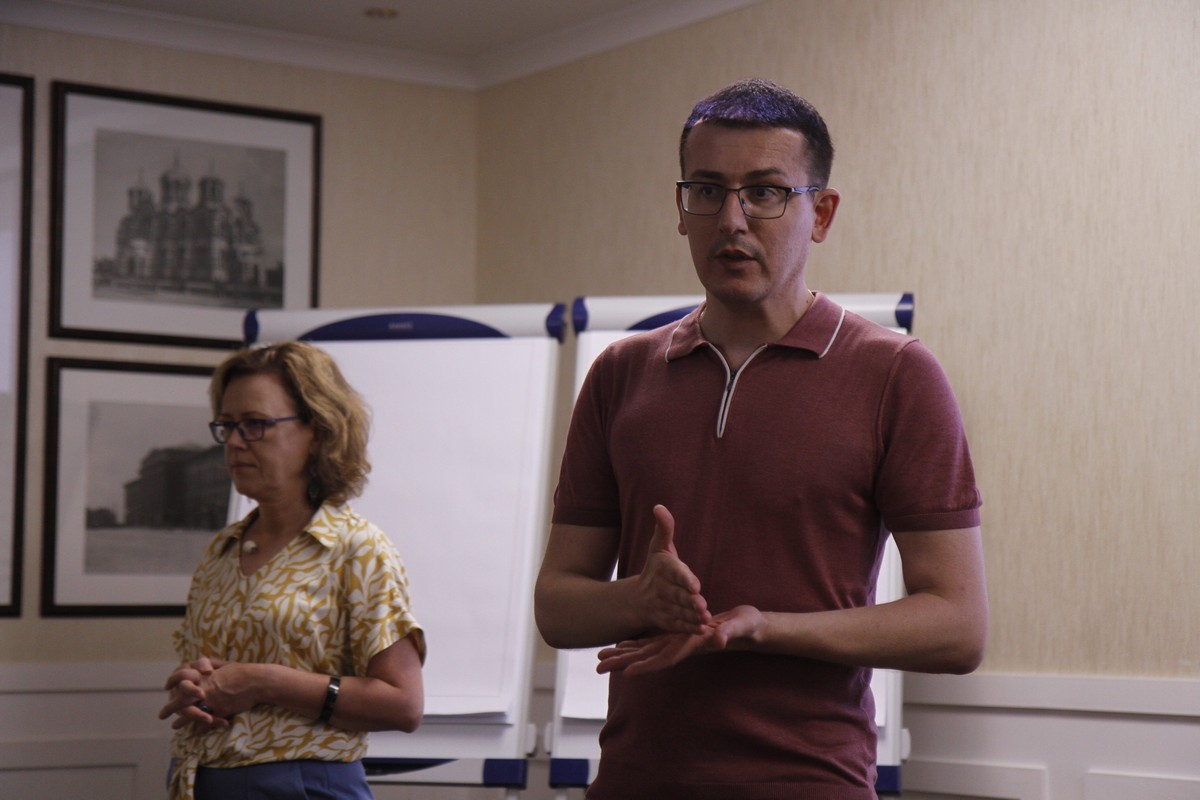
As Serhii Movchan, the head of the War Crimes Documentation Department of the Ukrainian Helsinki Union for Human Rights, noted, “When we document specific stories about war crimes, we document the crimes themselves. But in their totality, we can document the genocide against Ukrainians.”
In particular, he named the main principles of documenting war crimes:
- not to harm the person-victim of a crime,
- not to spread information such a person does not want to spread,
- fulfill the obligations assumed,
- not to create false expectations,
- get to know the context of the event,
- see victims as individuals,
- make documentation useful,
- respect the person’s choice as for publishing of the event.
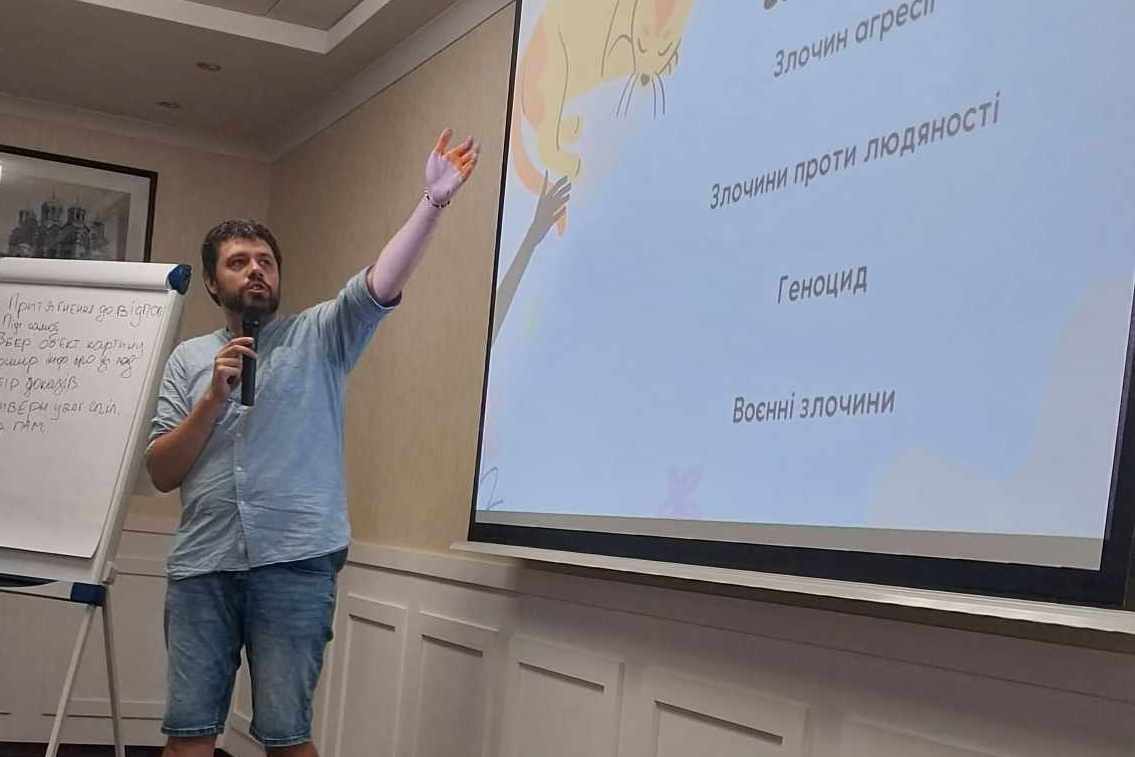
Serhii Movchan urged not to confuse war and war crimes: if a war crime is a serious intentional violation of the “laws of war” and the norms and principles of international humanitarian law, a war crime is a crime against the established order of military service.
Legal issues were covered in more detail by the candidate of legal sciences, professor of the criminal and legal policy department, and criminal law of Taras Shevchenko National University of Kyiv, Kostiantyn Zadoya.
“International humanitarian law allows civilians, including journalists, illegally deprived of their liberty by the occupiers, to file complaints and defend their right to release,” he explained.
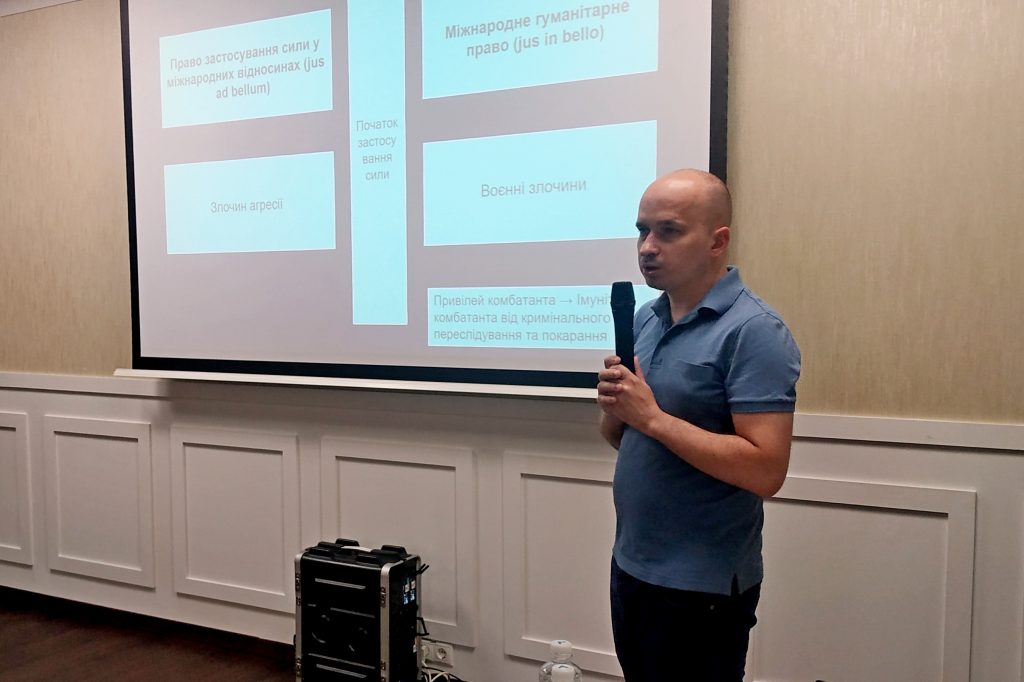
The lawyer, in particular, emphasized that persons detained by the occupiers, believing that they may commit certain acts against them (internees) or those who committed such acts, should have the right to challenge their detention. They cannot be considered as prisoners in any case.
Oleksandra Romantsova, the head of the Center for Civil Liberties and a Nobel laureate, spoke about how to effectively work on documenting war crimes.
She believes that when starting work at a crime scene, it is necessary to ensure the area is safe.
Therefore, she offered to take a photo of the general plan of the area and destruction, save the geolocation of the photos in order to preserve the metadata, and not to forward these photos via social networks.
First of all, it is necessary to talk with the witness (victim) directly. During the conversation, take his/her contacts and definitely one more person who lives nearby. Among the mandatory questions to the witness should be “What is this place?”, “What happened?”, “What happened before that?”, “Where were you during the event?”.
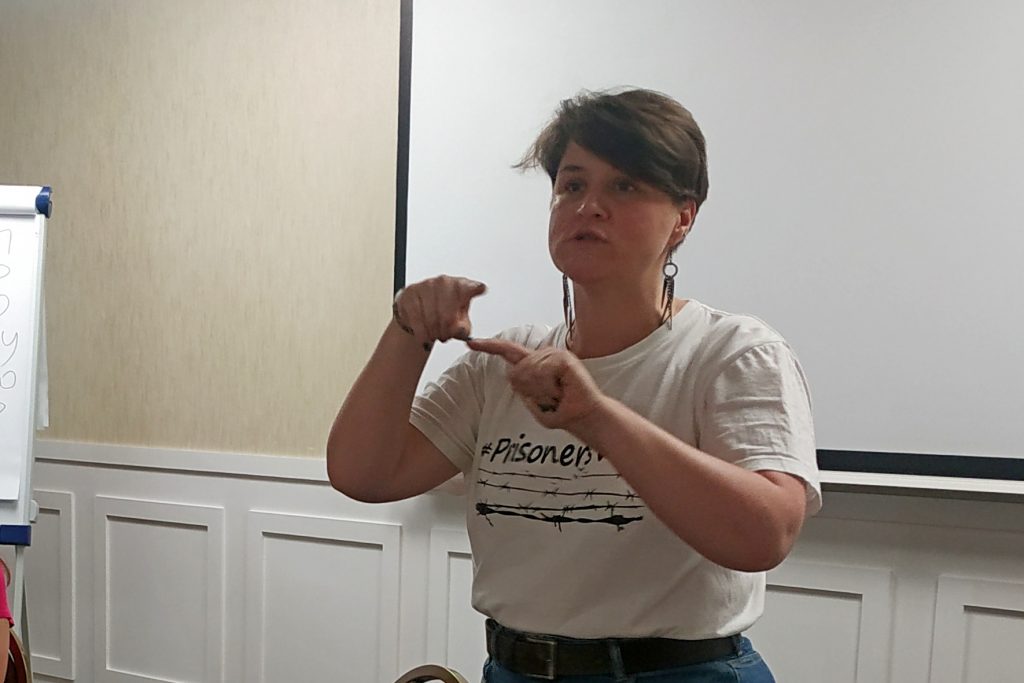
During the conversation, a journalist should express sympathy and find out what information can and cannot be shared. It is necessary to collect as much material as possible to help future investigators but not to try to draw immediate conclusions.
Liudmyla Huseinova, the communications director at the SEMA Ukraine non-governmental organization, gave necessary advice on how to write about sexual violence related to the military conflict.
Conducting such conversations requires special delicacy skills in communication with the victims. Any word, gesture, distance from the interviewer, and even the gender of the interviewer can traumatize…
“In any case, those who experienced sexual violence cannot be called “victims.” Because a victim is someone whose personality is severely harmed, and these people, although they have suffered, continue to live and move forward,” emphasized Ms. Liudmyla, who survived three years of russian captivity.
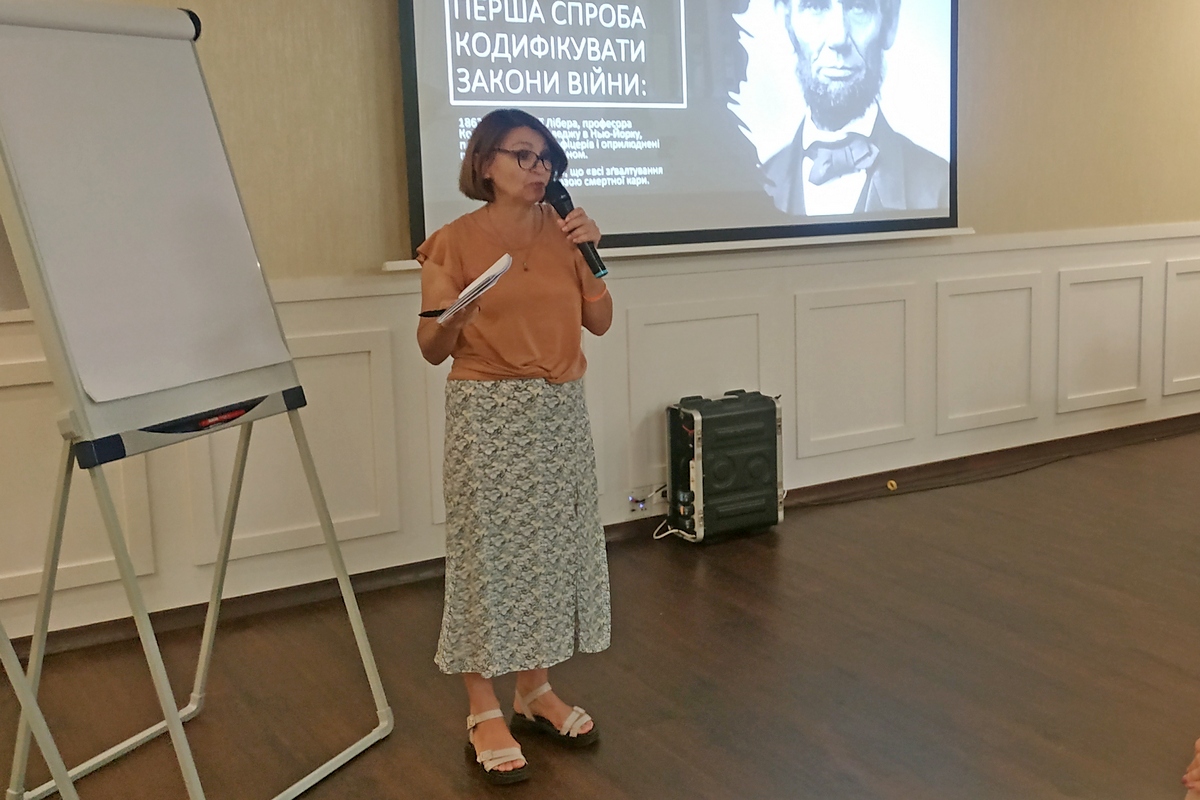
In her opinion, it is preferable to conduct the interview not at home but at a distance (for example, in the office). When preparing for the meeting, you should create a cozy atmosphere: buy cookies or candies, water, and make tea. At the beginning of the meeting, explain to the person that he/she is not alone and that there are organizations and institutions that support such people (for this, in preparation, the interviewer should find out for himself what these organizations and institutions are). During the conversation, it is necessary to allow the person to speak for him/herself, not to ask specific questions. When it comes to mass violence, one cannot single out one of the victims – everyone must be treated equally!
Without a doubt, the best and most objective way to talk about an event is shortly after it. Subsequent stories become less objective. Therefore, when documenting war crimes, it is worth talking to the witness once and writing it down as a more straightforward story. Such key advice was given by the co-founder of the Laboratory of Public Interest Journalism and The Reckoning Project: Ukraine Testifies, Nataliya Humeniuk.
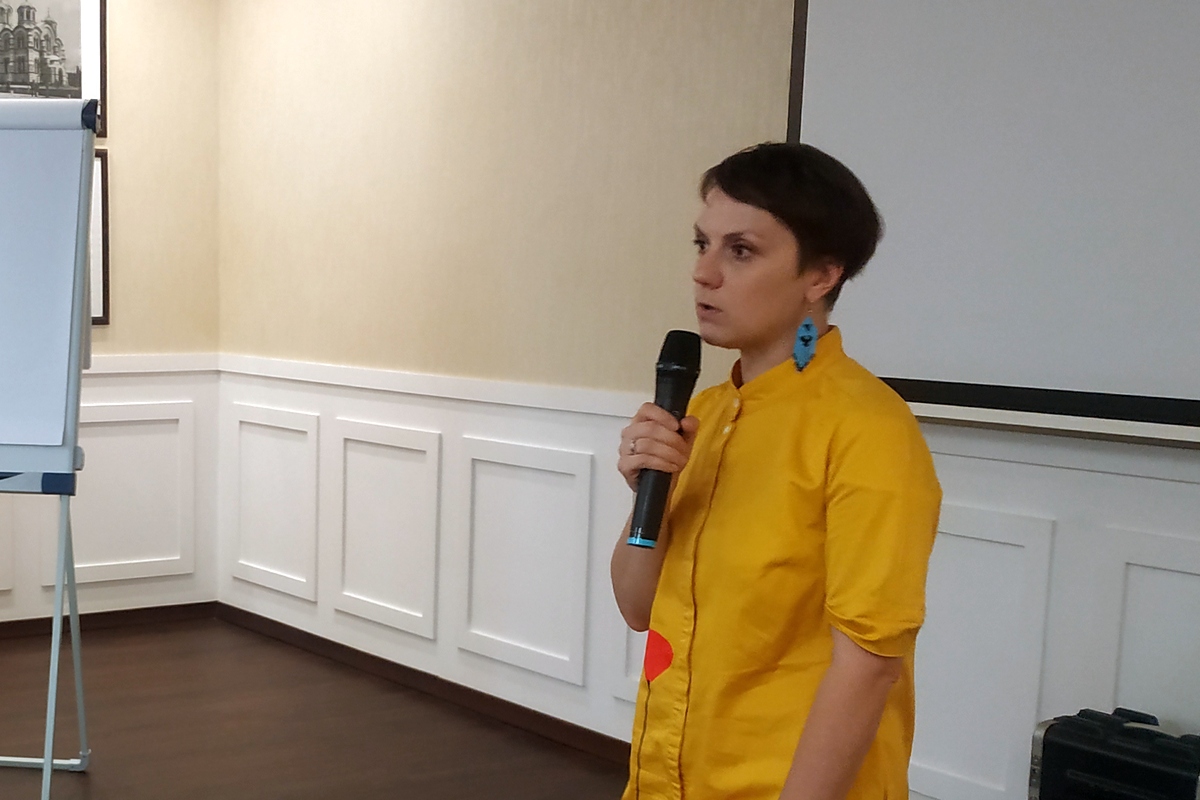
Her recommendations are to:
- talk only with those who want to talk,
- stipulate in advance how the interview will take place, how it will be used, discuss the issue of anonymity,
- better talk during a personal meeting; no rush is possible,
- take care in advance about the availability of water, handkerchiefs, etc., from time to time, offer the person to rest, drink water, smokers – to smoke,
- not to offer the crying person to “calm down,” on the contrary – emphasize the naturalness of such a reaction,
- it is desirable to ask open questions: “What happened?”, “Where were you?”, “What did you see?” etc., not to give the witness any “hints,”
- not to leave a person “in a state of the past,” end the conversation with a conversation about today,
- not to edit quotes when presenting the interview.
The representatives of the Truth Hounds organization – executive director Roman Avramenko and evidence manager Olha Opalenko – emphasized the importance of careful preparation for the trip.
When documenting the occupiers’ crimes, one should be prepared technically and logistically and, above all, have the necessary knowledge. It is necessary to undergo several training sessions in tactical medicine because the knowledge and skills that are given at each of them vary a lot. Terrain orientation training can also be important.
In advance, it is necessary to collect a list of valuable contacts within the territory where the trip is carried out.
It is worth traveling in de-occupied and front-line territories in groups, having means of protection, paper maps, high-capacity power banks, and a supply of fuel for the car. The trip cannot be announced publicly under any circumstances.
During the trip itself, strictly observe safety rules for yourself and witnesses.
Important: Interviews with some traumatized witnesses can be dangerous and should not be conducted alone.
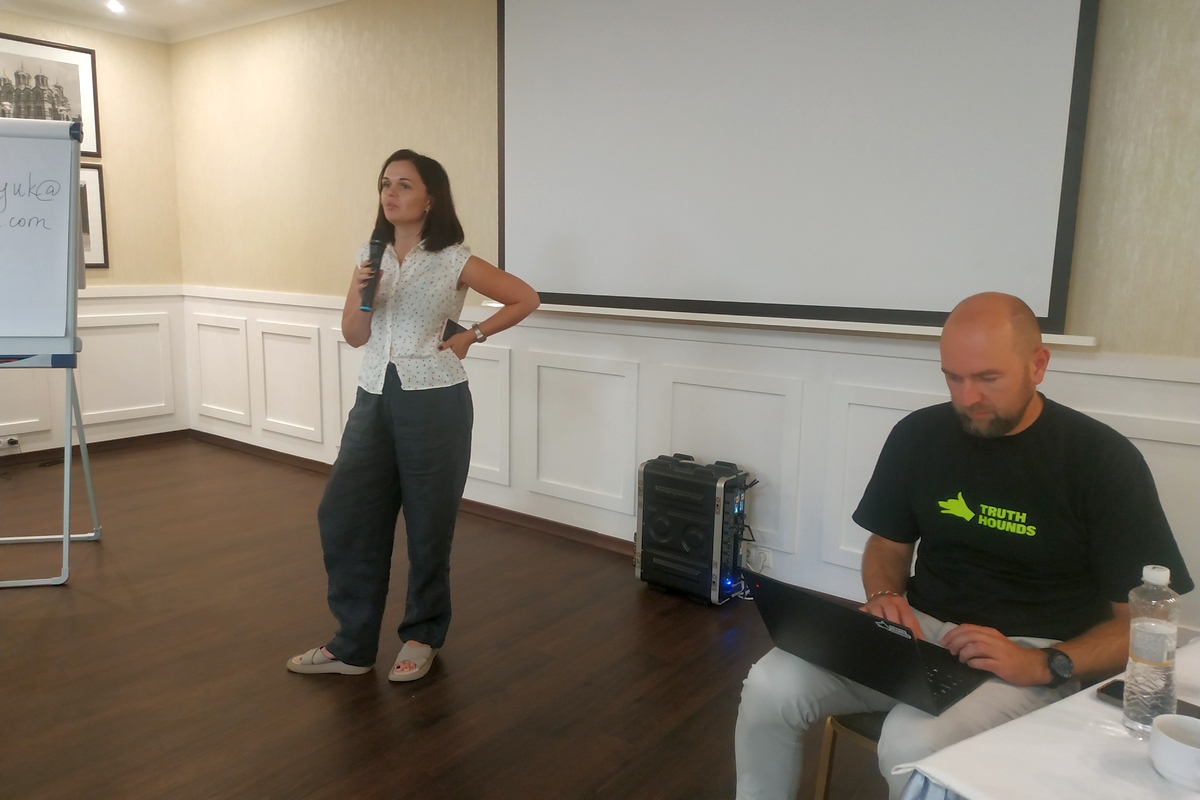
To prevent possible panic in a stressful situation, you should identify for yourself an experienced person whose instructions you will follow.
A separate panel, Executed Free Speech, held by the NUJU, was devoted to media workers who became the targets of the russian military offensive in Ukraine and the consequences of the russian occupation for Ukrainian media.
“We are very proud that the absolute majority of Ukrainian journalists take a patriotic position not to cooperate with the occupiers, and there are practically no media persons willing to become collaborators in the occupied territories,” emphasized Sergiy Tomilenko.
Lina Kushch spoke about how the NUJU team worked on the project Executed Free Speech, within the framework of which more than 100 text and video testimonies were collected about the crimes of the russian occupiers against media workers in Ukraine.
“We are in a hurry to record war crimes against journalists before the evidence is destroyed and the memories are erased. We are in a hurry to bring these materials to their logical end – the punishment of those guilty of these crimes. After all, evil is not abstract; it has its own name and surname,” Lina Kushch emphasized.
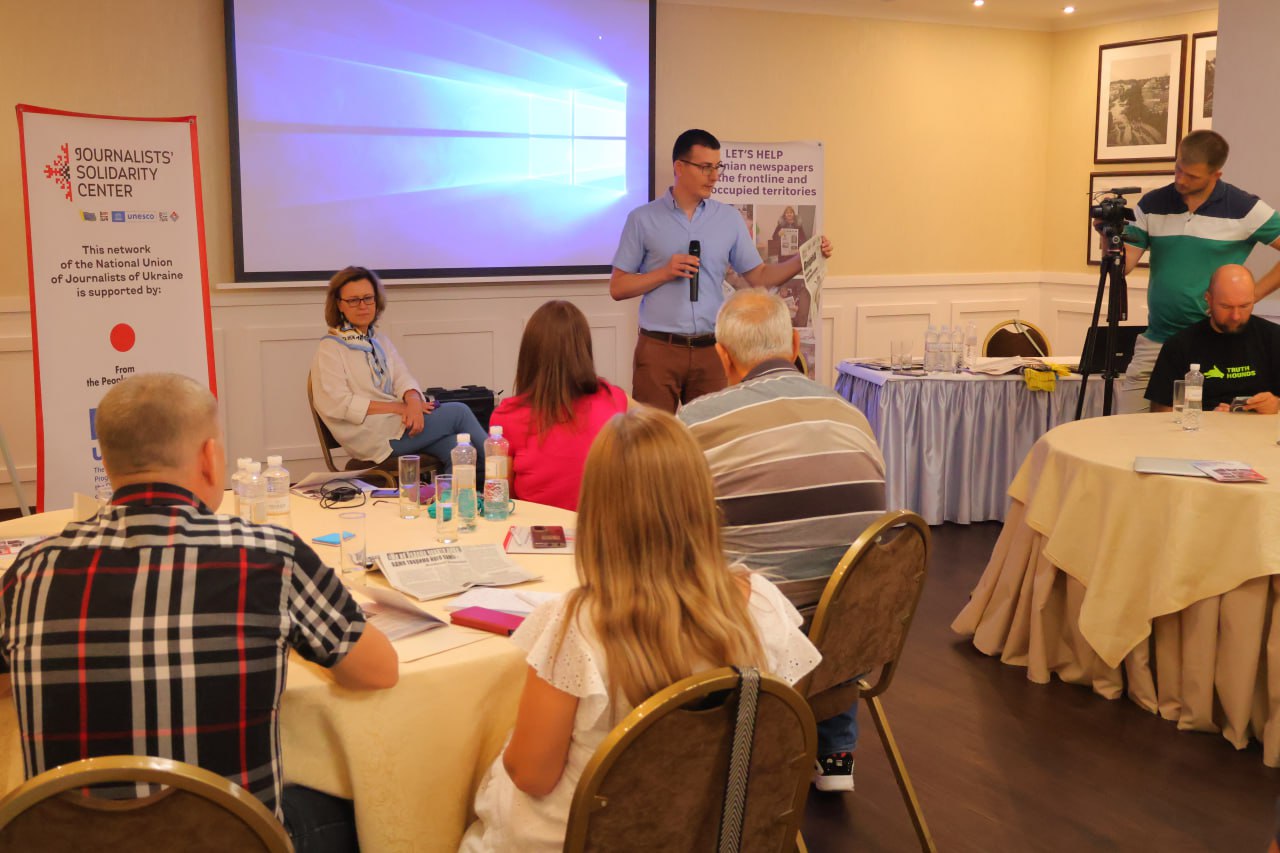
According to the War Crimes Documentation School participants, the workshop exceeded their expectations.
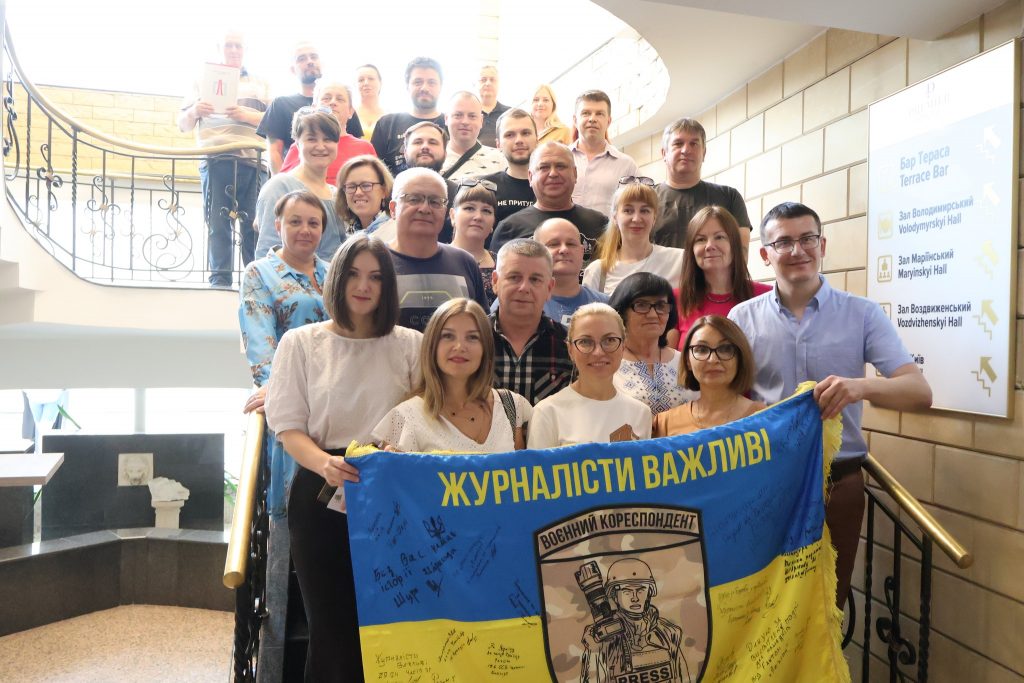
The War Crimes Documentation School for journalists will be implemented as part of the USAID Ukraine – USAID Ukraine Human Rights in Action Program.
USAID is one of the world’s leading institutions in the development field, which acts as a catalyst for these processes and helps achieve positive results. USAID‘s activities are a manifestation of the benevolence of the American people and also support the advancement of aid recipient countries to self-reliance and stability and contribute to the national security and economic well-being of the United States. Partnership relations USAID has been supporting Ukraine since 1992; during this time, the total value of assistance provided to Ukraine by the Agency amounted to more than USD 3 billion. The current strategic priorities of USAID‘s activity in Ukraine include strengthening democracy and suitable governance mechanisms, promoting economic development and energy security, improving health care systems, and mitigating the consequences of the conflict in the eastern regions.
For further information about USAID‘s activities, don’t hesitate to contact the Public Relations Department of the USAID Mission in Ukraine at tel. (+38 044) 521-57-53 or visit the website: http://www.USAID.gov/ukraine, or our Facebook page: https://www.facebook.com/USAIDUkraine.
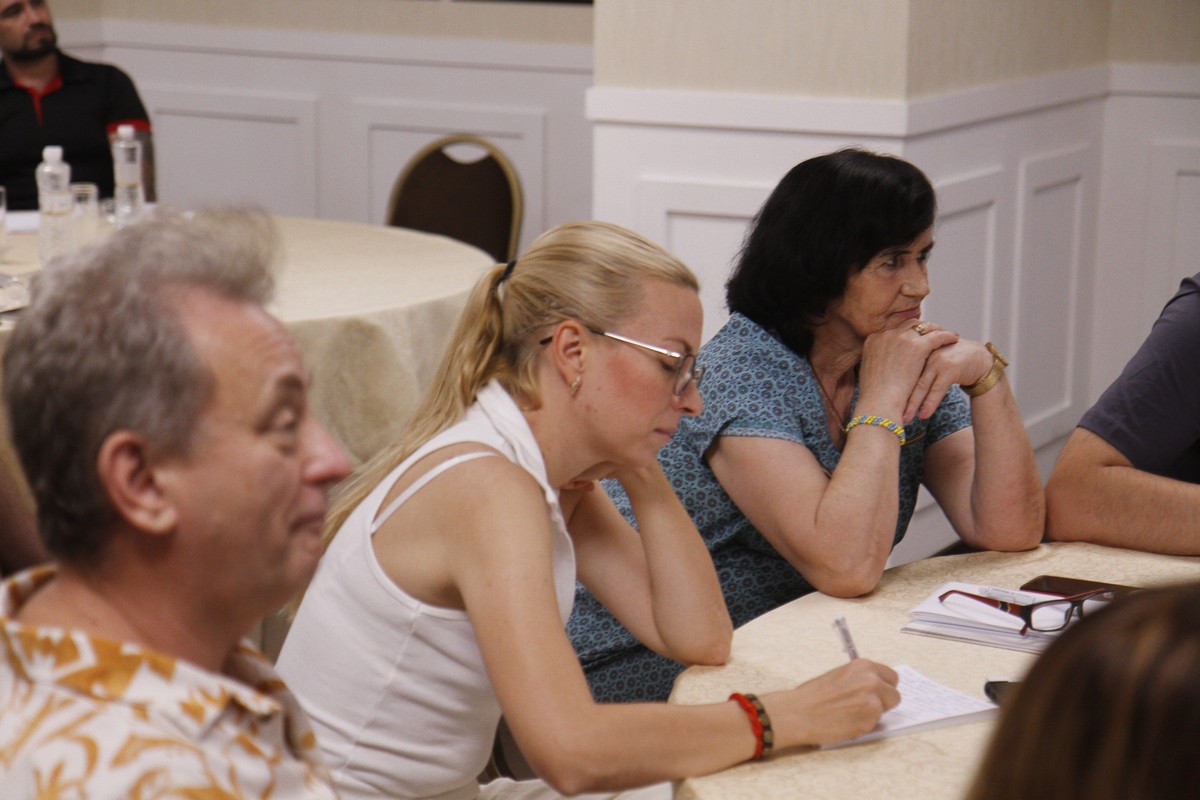
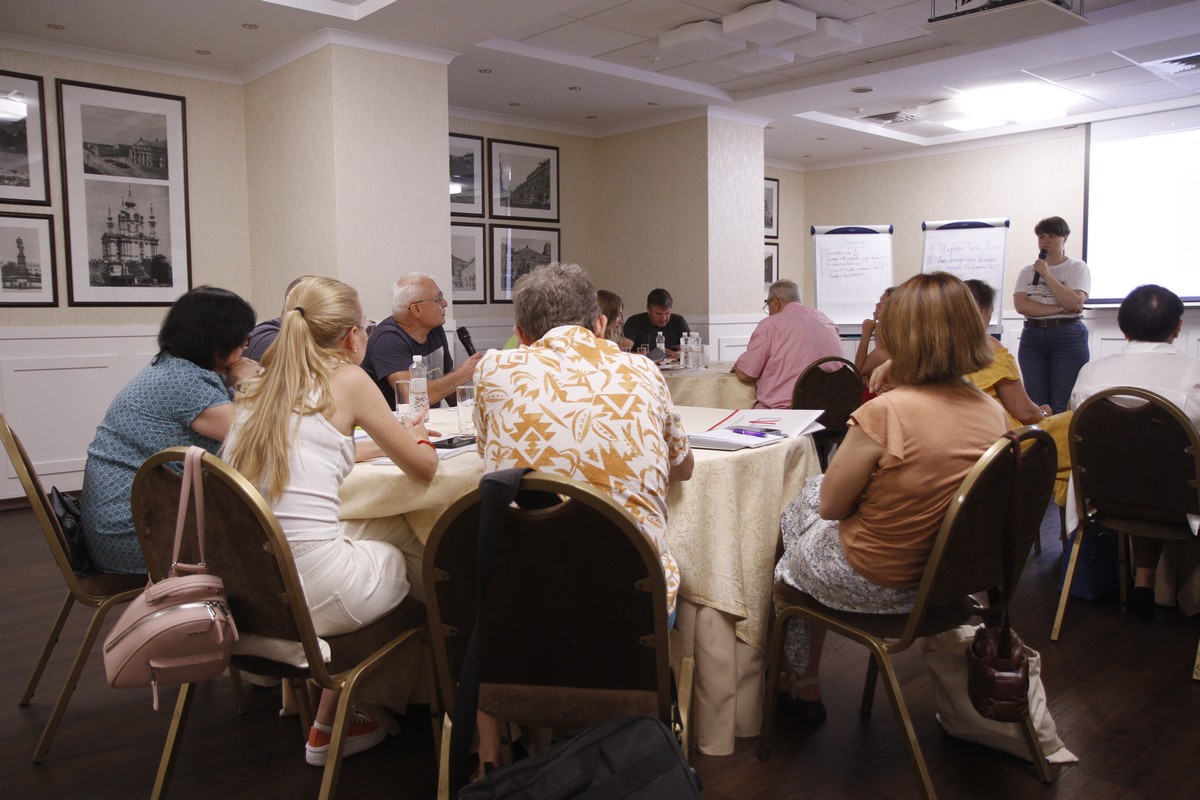
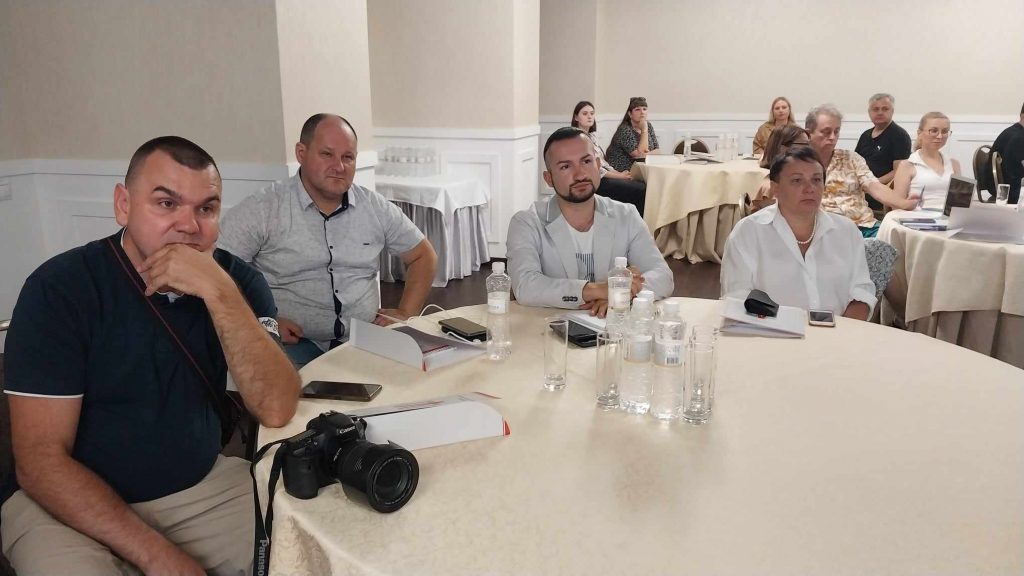
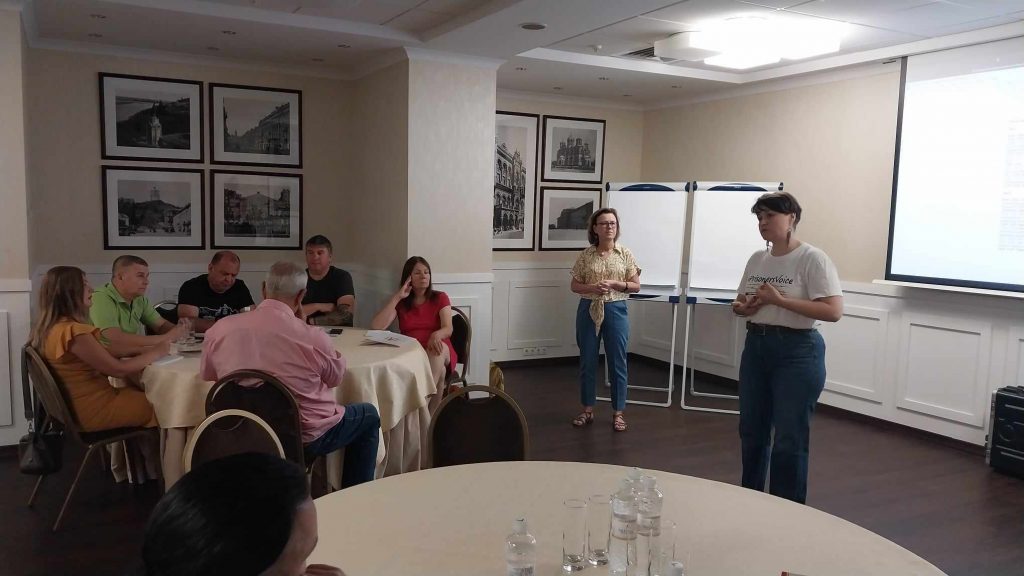
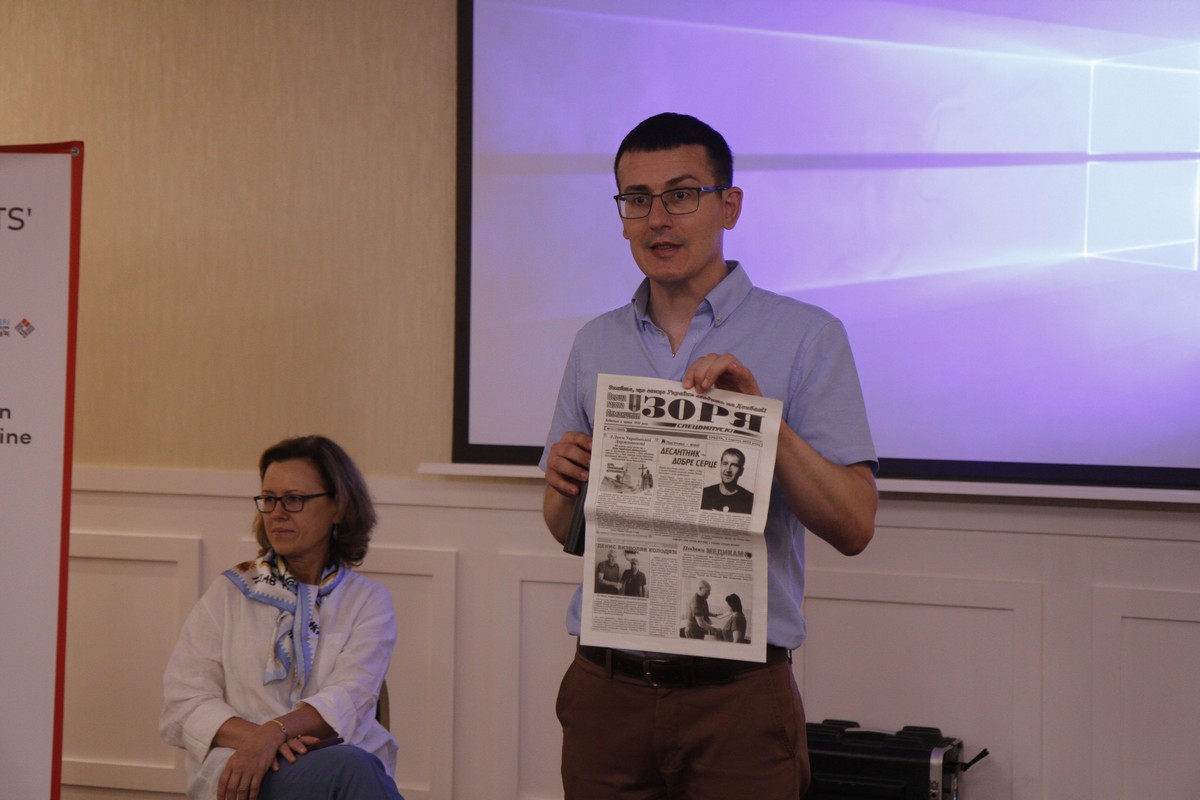
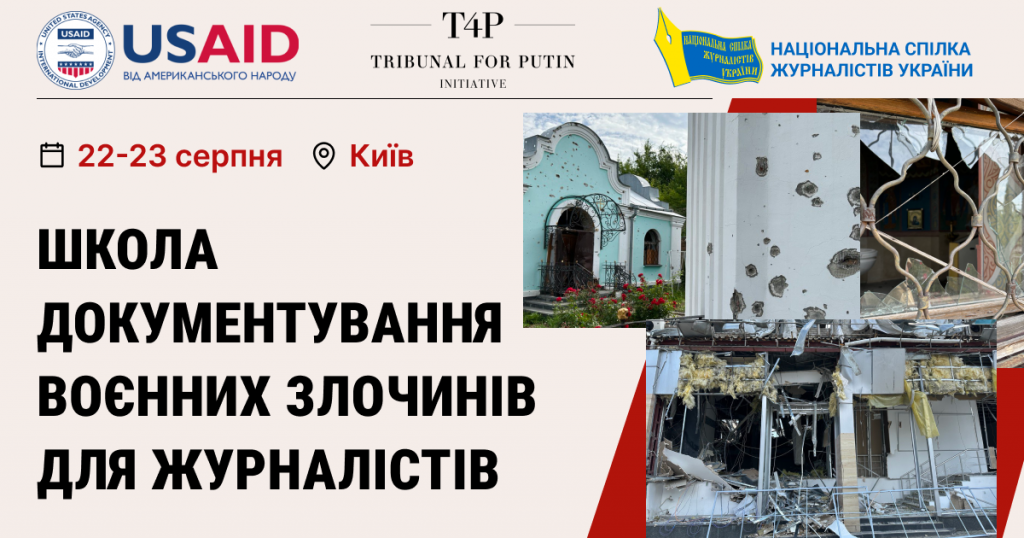
NUJU Information Service
Photo: Larysa Portianko, Dmytro Bondarenko, Maksym Stepanov

 THE NATIONAL UNION OF
JOURNALISTS OF UKRAINE
THE NATIONAL UNION OF
JOURNALISTS OF UKRAINE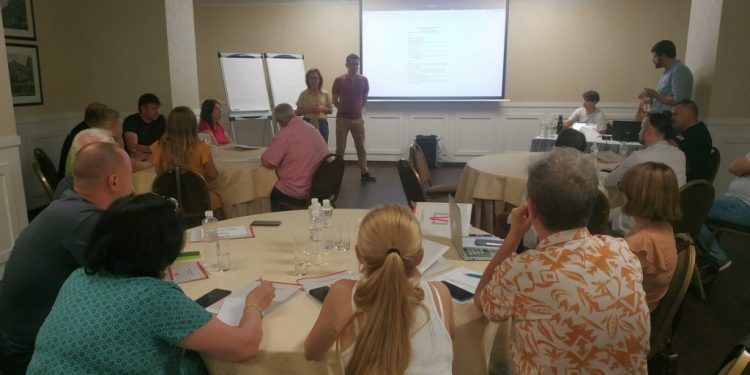


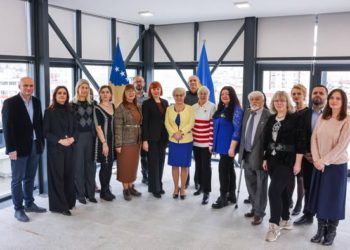













Discussion about this post